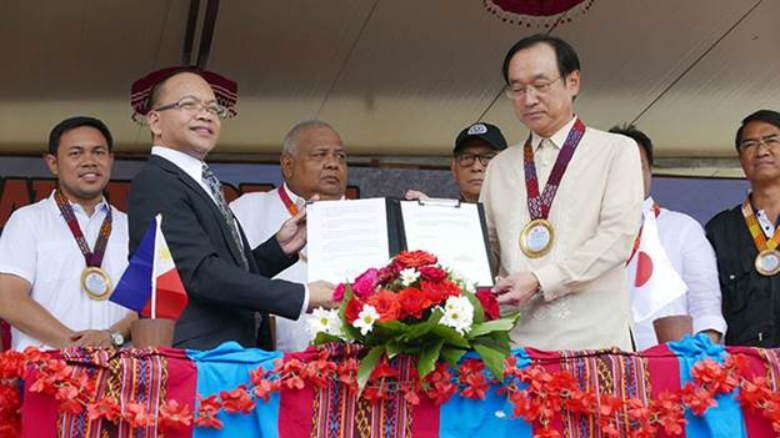The Government of Japan and the United Nations Human Settlements Programme (UN-Habitat) have exchanged notes to signify their partnership on a post-conflict shelter rehabilitation project, with financial support of $10 million from Japan.

The Marawi Peacebuilding Through Shelter Recovery Project, focusing on peacebuilding through community-driven shelter and livelihood recovery, aims to support people displaced by the Marawi conflict, which took place from May to October 2017, in the recovery of shelter and community infrastructure. To contribute to the peacebuilding process and sustainable development, the housing and infrastructure components will be supplemented by peace-promotive capacity development and livelihood support.
The Marawi conflict in the Philippines was a five-month-long armed conflict in Marawi, Lanao del Sur, that started on May 23, 2017, between Philippine government security forces and militants affiliated with the Islamic State of Iraq and the Levant (ISIL), including the Maute and Abu Sayyaf Salafi jihadist groups. The battle also became the longest urban battle in the modern history of the Philippines.
During the conflict, the Maute group militants attacked Camp Ranao and occupied several buildings in the city, including Marawi City Hall, Mindanao State University, a hospital and the city jail. They also occupied the main street and set fire to Saint Mary’s Cathedral, Ninoy Aquino School and Dansalan College, run by the United Church of Christ in the Philippines(UCCP). The militants also took a priest and several churchgoers hostage.
The shelter recovery project, according to the promoters, will be implemented using a community-driven approach to empower households whose homes have been destroyed, by providing training that helps them become active actors in rebuilding their homes and communities.
Shelter reconstruction support will be provided for 1,500 affected households that will be organised under the Community Mortgage Programme (CMP) of the national government through the Social Housing Finance Corporation (SHFC). Transcending this community-focused approach is the development of a city-level recovery and reconstruction plan, including the local shelter plan, that will situate the role of the families and communities in the overall rebuilding of the city.
Complementing shelter recovery, the project will also provide livelihood support by training households in construction, small-scale enterprise development, and other similar skills. Capacity-building for communities will also be at play as they get training on project, business, financial management, with a strong mindfulness for gender balance, peace building, and social development mainstreamed into the training.
The project endeavours to ensure that all related activities are carried out in a manner that helps strengthen or rehabilitate the social fabric and promote peacebuilding among families and communities in relation to the wider community of Marawi and the region.
While shelter reconstruction will directly benefit 1,500 families, the project collectively targets a broader range of stakeholders, about 4,000 households, who will benefit from complementary activities like the construction or improvement of community infrastructure (water, sanitation, road, multipurpose centres), community development support, livelihood assistance, and peace and development initiatives.
The project, slated to run for a year, will be implemented by UN-Habitat in collaboration with partners on several fronts: with national government agencies and offices such as the Department of Social Welfare and Development, Housing and Urban Development Coordinating Council and the Social Housing Finance Corporation, the Office of Civil Defense, and the Task Force Bangon Marawi; with the local government of Marawi; and with the homeowners’ associations in participating communities.
